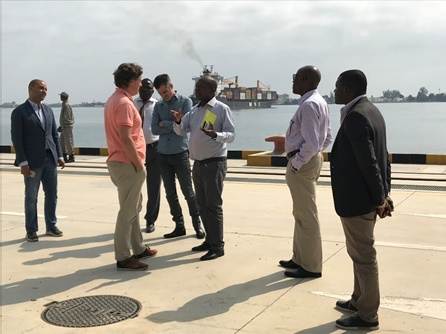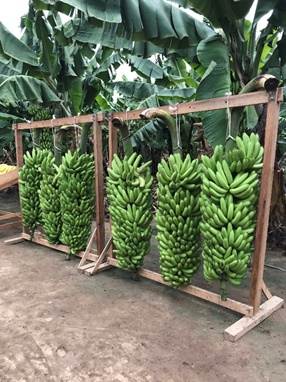Agro- Logistic workshop on the Lobito Corridor, Angola, on July 4th
The purpose of this workshop was to hold an interactive discussion where a representation of all relevant stakeholders could discuss the development of the Lobito Corridor including the current state, the potential and necessary steps to achieve this potential. Participants explored adaptation options, planning strategies, new procedures for operation and management, and capital/infrastructure improvements that would increase economic development along the corridor and neighboring provinces.
The Netherlands, a country that is about the same size as the province of Benguela. However small, it is the second largest exporter of agri-food products (after the US). We export fruits and vegetables to 150 countries worldwide, import from 107 countries and produce about 3 billion euros of fruits and vegetables per year. In tomatoes, for example, we are the biggest producers in the world.
To distribute these goods mainly in Europe and the world, the Netherlands needs an excellent network of railways, waterways and interconnected roads. From climate controlled storage to transportation facilities.
At request and together with the Ministry of Transport and, consequently, the Lobito Corridor Office, the Embassy of the Kingdom of The Netherlands organized a workshop to help make the investments made by the Angolan Government in the Lobito Corridor logistics chain profitable. Members of the Dutch Consortium Flying Swans were present to present good practices and to see on the spot how the Corridor looks like. The Consortium, which consists of the Port of Rotterdam, Boskalis, Groenten Fruit Huis, and Mercator Novus, are at the moment implementing development strategies in Djibouti/Ethiopia, Tanzania and South Africa.
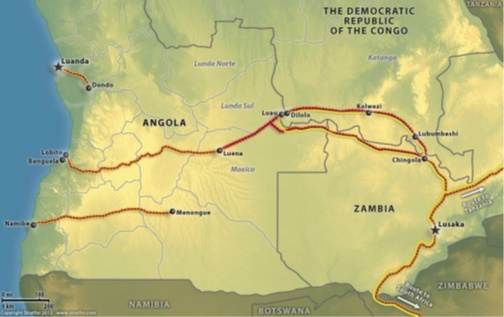
On the 4th of July, more than 125 local stakeholders gathered to participate in “The Agro-Logistic potential along the Lobito Corridor workshop”, held at AGT (Administração Geral Tributaria) auditorium in Lobito. This to discuss how integrated logistical solutions may influence positively the economical agricultural value chain along the Lobito Corridor and to identify possible next steps to improve and implement priority adaptation strategies.
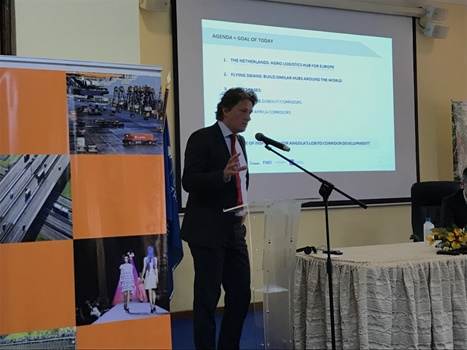
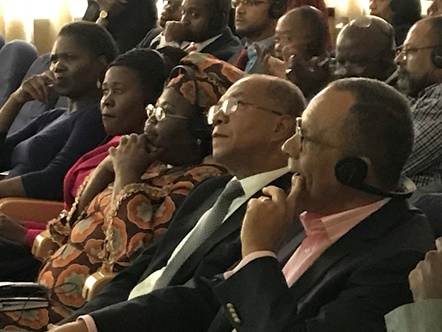
Workshop participants included representatives from local and central government, logistical and agricultural productive sectors.
During the field visit, relevant corridor logistical infrastructure as for example the Benguela railway station, Lobito Port and Catumbela Airport cargo terminal were visited. Also large agricultural producers were visited.
